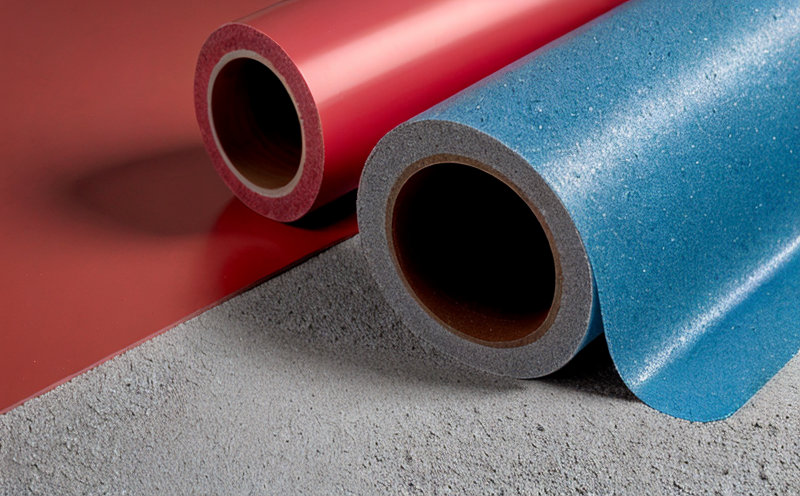ISO 2688 Fire Resistance Testing of Lubricating Oils
The ISO 2688 fire resistance test is a critical method used to evaluate the performance of lubricating oils under conditions that simulate real-world scenarios where they might be exposed to high temperatures and flames. This testing ensures that lubricants can continue to function effectively in environments characterized by intense heat, which are common in aerospace and aviation sectors.
The primary objective of this test is to determine how well a lubricant resists ignition when subjected to specified conditions. The standard specifies the apparatus, procedures, and criteria for conducting the test, ensuring that results can be consistently replicated across different laboratories worldwide. This consistency is crucial given the international nature of aerospace and aviation industries.
The test involves heating a sample of the lubricating oil under controlled conditions until it reaches its flash point or ignites spontaneously. The duration from initial application of heat to when the lubricant catches fire is measured. After ignition, further exposure time to high temperatures helps assess how long the lubricant can sustain combustion before self-extinguishing due to lack of fuel.
This information is vital for ensuring that lubricants used in aircraft engines and other critical components meet stringent safety standards. Failure during such tests could lead to catastrophic failures, posing significant risks not only to maintenance personnel but also to passengers and crew aboard commercial flights or military aircraft.
Aerospace-grade lubricants must perform reliably under extreme conditions, making ISO 2688 testing essential for quality assurance in this sector. By adhering strictly to the prescribed procedures outlined by the international standard, laboratories can provide accurate data that informs decisions about which products are fit for use within aviation environments.
For R&D engineers working on developing new formulations of lubricants specifically tailored for aerospace applications, understanding these testing protocols allows them to design materials capable of meeting stringent requirements imposed by regulatory bodies like the International Organization for Standardization (ISO).
Compliance officers responsible for ensuring adherence to global regulations also benefit from familiarity with ISO 2688 because it forms part of the documentation proving compliance. In summary, this test plays a pivotal role in safeguarding aviation safety while promoting innovation through rigorous evaluation processes.
Why Choose This Test
Choosing ISO 2688 fire resistance testing for lubricating oils is essential due to its direct impact on ensuring the safe operation of aircraft and other aerospace equipment. The test provides valuable insights into how well a particular lubricant will behave in high-temperature environments, which are prevalent throughout various stages of an aircraft's lifecycle.
- High Reliability: By subjecting lubricants to conditions similar to those encountered during emergencies or malfunctions, the ISO 2688 test evaluates their ability to maintain performance even under extreme circumstances. This reliability is crucial for maintaining smooth operations and preventing costly downtime.
- Safety Assurance: The results from this testing help identify any potential issues early on before they escalate into serious problems that could endanger both personnel and property. Knowing which products are safe ensures safer working conditions for everyone involved in the maintenance process.
- Informed Decision-Making: Results obtained through ISO 2688 testing allow decision-makers to make informed choices about selecting appropriate lubricants based on their fire resistance capabilities. This knowledge contributes significantly towards reducing risk factors associated with improper selection of materials.
R&D engineers play a vital role in leveraging the outcomes of this test by incorporating valuable feedback into subsequent iterations of product development cycles. Their insights contribute to creating more robust, efficient, and reliable products suitable for demanding aerospace applications.
Compliance officers find great utility in having access to consistent data generated via ISO 2688 testing because it facilitates easier compliance verification efforts across different jurisdictions. This uniformity streamlines the regulatory approval process, making it quicker and more straightforward for manufacturers to bring their innovations to market.
International Acceptance and Recognition
- Aerospace Industry: The aerospace industry widely accepts ISO 2688 fire resistance testing as a benchmark for evaluating lubricants used in various parts of aircrafts. This acceptance is due to the stringent safety standards required by international aviation authorities like the Federal Aviation Administration (FAA) and European Union Aviation Safety Agency (EASA).
- Military Applications: Similarly, military organizations globally recognize ISO 2688 as a crucial standard for ensuring that lubricants used in defense equipment meet strict fire safety requirements. This recognition underscores its importance beyond civilian aviation.
- Research Institutions: Academic institutions specializing in materials science and engineering also incorporate ISO 2688 into their research protocols when studying the properties of new lubricant formulations aimed at enhancing performance under extreme conditions.
The widespread adoption across these sectors highlights the significance of adhering to this international standard, ensuring that lubricants used in critical systems are not only effective but also safe and reliable.
Environmental and Sustainability Contributions
In recent years, there has been increasing emphasis on sustainability within the aerospace industry. One way to contribute positively towards this goal is by selecting lubricants that pass ISO 2688 fire resistance testing successfully. Here's why:
- Eco-Friendly Formulations: Many modern lubricant manufacturers are developing eco-friendly alternatives that not only meet but exceed the stringent requirements set forth in ISO 2688. These greener options help reduce environmental impact while still providing excellent performance.
- Reduction of Waste: By ensuring that lubricants used in aerospace applications have superior fire resistance properties, there is less likelihood of spills or leaks leading to waste disposal challenges. This reduction promotes cleaner operations and safer working environments.
- Promoting Recycling Efforts: Lubricants passing ISO 2688 tests can be recycled more easily without compromising safety or effectiveness. Such practices encourage recycling initiatives, contributing further to overall sustainability efforts within the industry.
These contributions highlight how adhering to international standards like ISO 2688 can positively influence both operational efficiency and environmental responsibility in aerospace operations.





